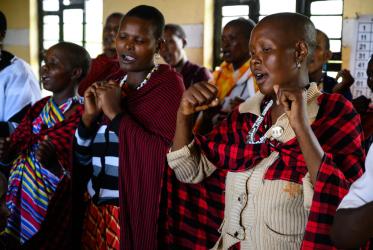Displaying 1 - 8 of 8
Young Africans are eager to grapple with challenges
09 January 2020
Rev. Kenneth Mtata reflects on journey of transition in Zimbabwe
20 September 2018
WCC Executive Committee comments on situation in Zimbabwe
22 November 2017
Zimbabwe heads of churches issue statement
16 November 2017
Person with disability shares reflection on AIDS conference
10 December 2015




